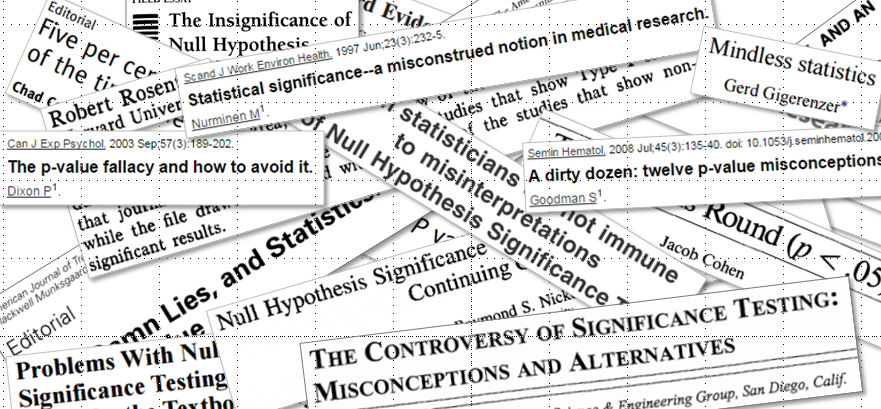In this case, the grad student who collected and manipulated the data remained (so far) unnamed, because he is, rightly or not, not listed as an author. But while it should be clear that authors have to take responsibility for what is published under their name, I think that responsibility reaches further.
In any complex study naturally a lot of people are involved. Of course it’s not the fault of the person at Siemens who wrote the scanning sequence if we then go and use it incorrectly and – in my opinion – neither is it the fault of a supervisor if their PhD-student “cleverly” manipulates the data.(1) After all it’s not kindergarten; not everything can be checked.
But it should be (though I know that it not always is) by “surprise” if an aspect of a study turns out to be problematic after publication: You shouldn’t be able to know prior to publication that, say, the statistics are somewhat dubious; papers with fishy statistics shouldn’t be published. However, it might turn out later on that “consistent signals” may just be artifacts produced by the imaging techniques - and the fact that brains need a constant supply of blood. In such cases it would be useful to know which sequence was used and how – exactly - the resulting data were analyzed. To figure that out the people who chose the sequence or did the analyzes should be known – which in the current mess of unregistered studies is much more likely if they are (co-)authors. Of course they also deserve to be on the paper if they had (substantial) work with the study but for them to become important at some point it doesn’t really matter how “scientific” their work was. The purely technical aspects can be just as important: How long did it take before blood was frozen, how (exactly) where the patients immobilized in the scanner, which arm was the blood pressure apparatus on, did the optic cables reliable transfer the signal and how was that made sure, …? One might say, that all these kind of information should be part of the publication but often it isn’t.
Another point is which responsibilities people involved in research have beyond their specific duties. While I generally think that the responsibility doesn’t extent (much) above ones area of expertise, I do think that everyone does have the responsibility not to knowingly do or support unethical stuff – and any unjustified or flawed study is unethical in my opinion. In this sense funding agencies share a great deal of responsibility and, once known, the media are also responsible for reporting scientific misconduct. However, of course it can be difficult to judge which studies are unethical or flawed.
(1) If the data are manipulated “uncleverly” I do however think that the supervisor has some responsibility because he or she should be able to “see” that.
(Unfortunately English is still not my native language. I'm sorry about that!)
But it should be (though I know that it not always is) by “surprise” if an aspect of a study turns out to be problematic after publication: You shouldn’t be able to know prior to publication that, say, the statistics are somewhat dubious; papers with fishy statistics shouldn’t be published. However, it might turn out later on that “consistent signals” may just be artifacts produced by the imaging techniques - and the fact that brains need a constant supply of blood. In such cases it would be useful to know which sequence was used and how – exactly - the resulting data were analyzed. To figure that out the people who chose the sequence or did the analyzes should be known – which in the current mess of unregistered studies is much more likely if they are (co-)authors. Of course they also deserve to be on the paper if they had (substantial) work with the study but for them to become important at some point it doesn’t really matter how “scientific” their work was. The purely technical aspects can be just as important: How long did it take before blood was frozen, how (exactly) where the patients immobilized in the scanner, which arm was the blood pressure apparatus on, did the optic cables reliable transfer the signal and how was that made sure, …? One might say, that all these kind of information should be part of the publication but often it isn’t.
Another point is which responsibilities people involved in research have beyond their specific duties. While I generally think that the responsibility doesn’t extent (much) above ones area of expertise, I do think that everyone does have the responsibility not to knowingly do or support unethical stuff – and any unjustified or flawed study is unethical in my opinion. In this sense funding agencies share a great deal of responsibility and, once known, the media are also responsible for reporting scientific misconduct. However, of course it can be difficult to judge which studies are unethical or flawed.
(1) If the data are manipulated “uncleverly” I do however think that the supervisor has some responsibility because he or she should be able to “see” that.
(Unfortunately English is still not my native language. I'm sorry about that!)

No comments:
Post a Comment